In the Romance of the Three Kingdoms, one of the four famous Chinese classical novels, there is an impressive scene: Zhuge Liang, the embodiment of wisdom, gave all kinds of master tips to his generals before the outbreak of war. Each time the generals found their life hang by a thread, they would use the tips and get out of danger.
This scene keeps us wondering: as educators and parents, do we have our own “master tips” while working with the children? Are there golden keys to education?
Acceptance is one of them. Chunhui Children’s programs have always embraced the concept of acceptance, so that each child could be seen and have a future with infinite possibilities.
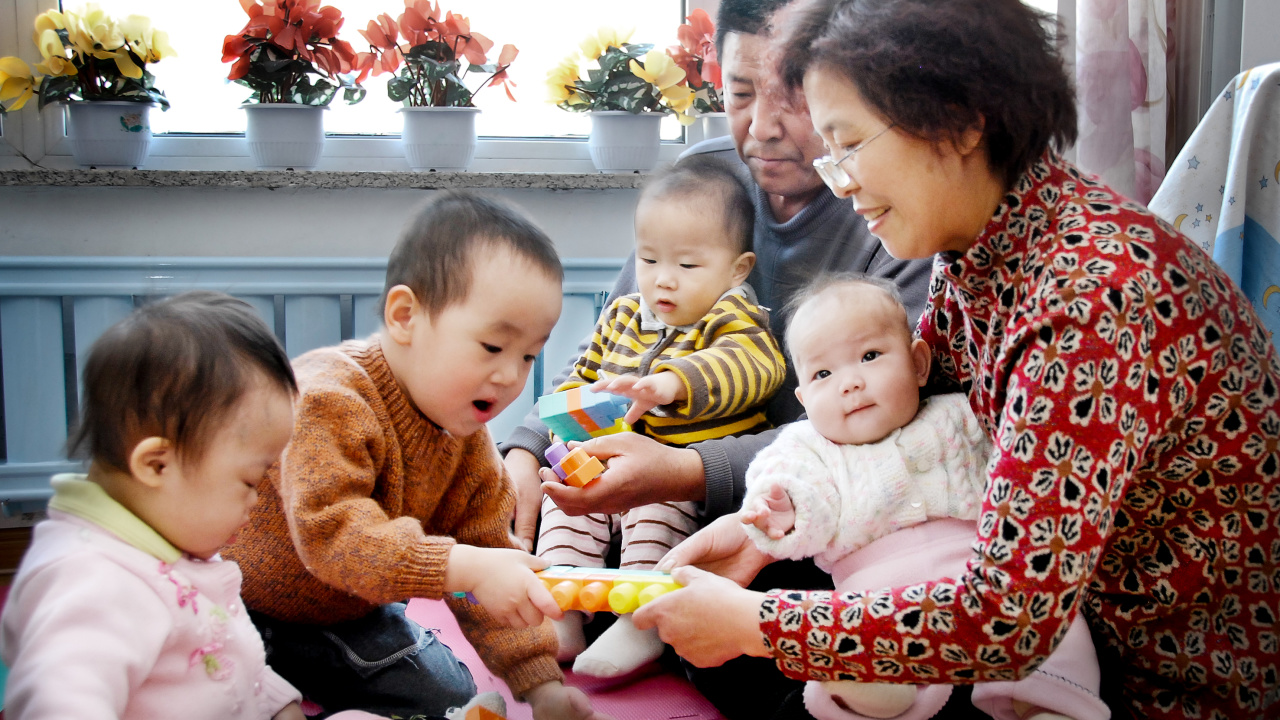
⏩ When a two-year-old kid rummaged through all the drawers in the house and threw things everywhere, his mom sighed helplessly as she cleaned up. When everything was finally put in order, the child repeated his “old tricks", and soon it was a mess again. The mother "compromised" and simply did nothing. Is this acceptance?
⏩When a teenage boy refuses to talk to his mother, his mother finally decides to let it go and keeps a distance from the boy. Is this acceptance?
⏩When a 4-year-old boy wants to buy a pair of pink sandals decorated with a bow, his mother says: “I understand you. But you are a boy, so you can't wear a pair of girls' shoes.” Eventually, she bought him a pair of Ultraman sandals. Is this acceptance?
⏩ Imagine such a picture: a pebble is thrown into a calm lake and ripples appear. You want to smooth them with your hands, only to find more come around. The pebbles are like troubles, unpredictable and unstoppable.
For a calm lake, the ripples may be troubles. Likewise, children seem less than perfect when they misbehave, have problems, and get bad scores at school. You don’t look perfect either when you get mad at your children’s imperfections. Well, it’s ok. Imperfections happen, everywhere and any time.
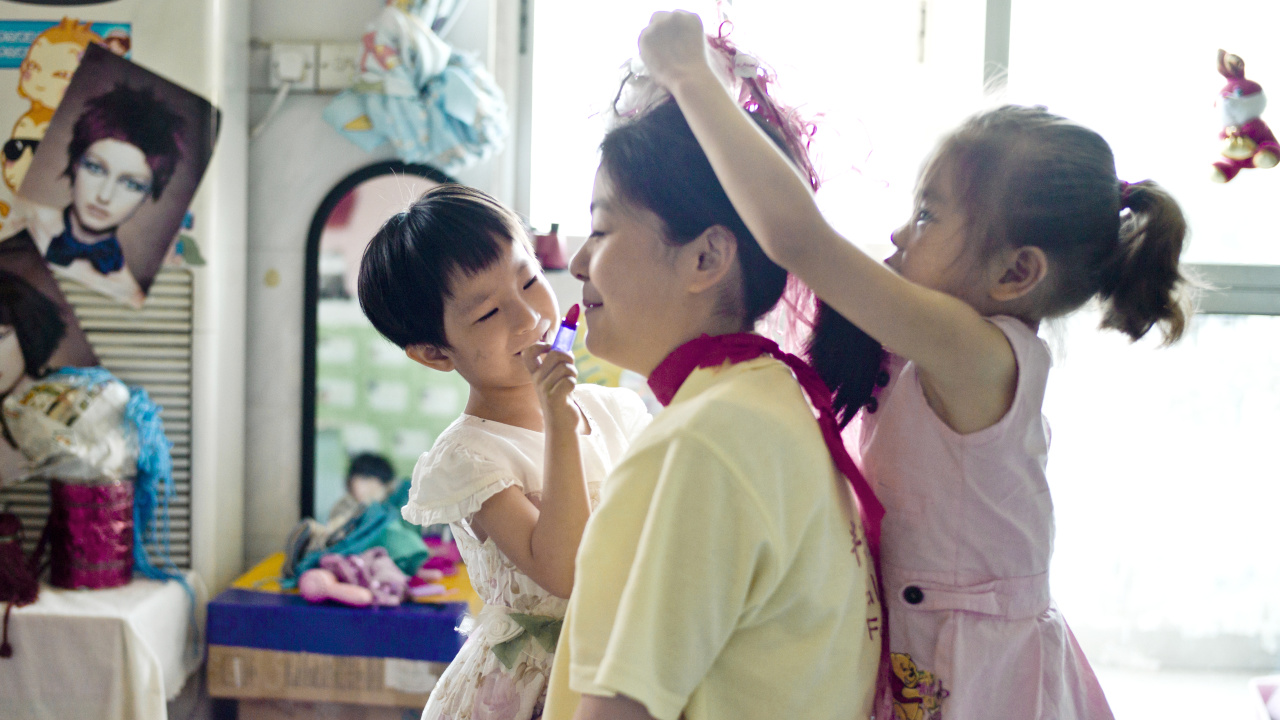
Acceptance is neither “compromise”, nor “escape”, nor “letting it go”. We should not focus on the poor behaviors of our children or put all kinds of demands on them.
Acceptance is to stand by the lake and appreciate the beautiful ripples that swing in circles; acceptance is to take it easy and stop worrying; acceptance is allowing those "problems" and "imperfections" to happen and then work out solutions. We need try to connect with our children, understand the reasons for their behaviors, support them and hug them when they are in trouble.
Traditional education of China uses the "one-size-fits-all" model. With their individual needs neglected, the children are not motivated enough in learning and exploring. However, as education progresses, we have come to realize that real education is not only impartation of knowledge, but also cultivation of personality, development of potentials and improvement of qualities. Only through real education can we enable and accept each child, so that they could grow into unique individuals and have a future with infinite possibilities.
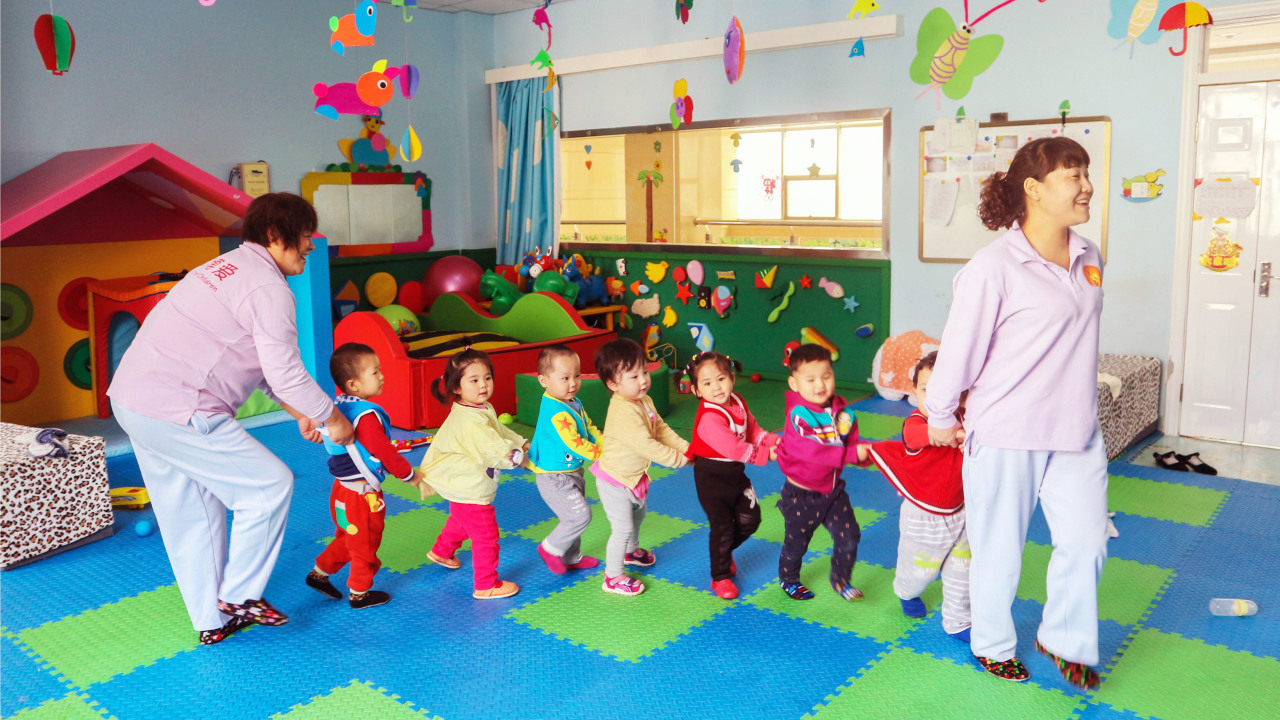

1.
Building self-confidence:
when we embrace acceptance in our education, we can boost the children’s self-confidence, self-fulfillment, and personality development. Acceptance promotes the establishment of a positive mindset. With this mindset, the children could learn from their experiences, from their mistakes and from others without worrying about being judged. This self-confidence enables the children to take up new challenges.
2.
Unlocking potentials:
every child is like a unique seed that needs the right soil and environment to grow. Acceptance allows children to feel loved and special. In nurturing environment, the children's potential is unlocked, their creativity is stimulated, and their imagination is aroused.
3.
Promoting mental health:
when accepted, children feel heard and understood, have the courage to speak up, learn to express themselves, understand others, develop empathy and social skills. This not only helps them build positive relationships, but also has a profound impact on their future social life.
4.
Increasing motivation to learn:
when children feel accepted, their motivation to learn will be boosted and their attitude towards learning will become more proactive. They will try their best to learn, not to please their Chunhui mamas or get some kind of reward and recognition, but to become better.
5.
Promoting individualized development:
Chunhui mamas who accept the children will use individualized teaching approaches to meet the children’s different needs and allow them to develop in their own ways.
6
Providing positive feedback:
those who accept the children value their all-round development, praise their efforts, and celebrate their progresses rather than focus on their certain skills, which will build up the children's self-confidence and sense of fulfilment.
7.
Establishing an inclusive environment:
when acceptance is practiced and indi-vidualism is recognized, an environment where people respect and understand each other will be made possible.
One afternoon, the children of Chunhui Early Education Program were enjoying themselves in the sand pool outdoors. A 3-year-old boy named Xubao suddenly stood up and peed in the sand. Then he excitedly picked up a shovel, mixed his urine with the sand, and warmly invited the kid beside him to join him in the fun.
Xubao’s Chunhui mama found this, went over, bent down, and asked gently: "Xubao, what are you doing here?" "Mama, look, the sand has softened,” the boy answered. " Xubao peed in the sand,” said the boy’s little friend.
“Why did you pee in the sand, Xubao?” asked the Chunhui mama. “I couldn't hold it anymore and I wanted to hide my urine in the sand. I found the sand softened when mixed with my urine. It’s so funny.”
"Oh, you couldn't hold it. You also noticed that the sand softened and was not the same as it had been, didn’t you? But are there other ways we can play with the sand?” responded the Chunhui mama with a smile. The boy thought about it for a moment and answered, "Mama, let's put some water in the sand." "Well, that’s a great idea.”
“We learned how to use the bathroom before. Do you think it is ok to pee in the sand? Can we pee in public places?” asked the boy’s Chunhui mama again.
“No. We must protect our private part.” “Absolutely. Promise me this won’t happen again, will you? It’s not good for our health either, is it?” “Ok, mama.” “Now, get some water and try out your new idea with your little friend.”
Unlike some parents who might have felt terrible and even scolded their boy if he had behaved like Xubao, the Chunhui mama accepted what Xubao did and redirected him in a positive way.
1.
Acceptance is an attitude. Xubao’s Chunhui mama stayed calm and open. Rather than give an immediate judgement, she gently bent down and talked to the boy. After learning that he just couldn't hold it and found it interesting to mix the sand with his urine, she thought the boy was good at exploring and gave him appropriate guidance.
2.
The Chunhui mama has professional knowledge about young children’s developmental needs. She knows that young children learn through exploration. In other words, they are likely to have all kinds of "performances". She recognized Xubao was not fooling around, instead he was trying new ways of exploring the sand, although he needed some redirection.
3.
To accept a child, we need understand his/her behaviors, whether good or bad. But this does not mean we say yes to all his/her behaviors. So, after learning about the reasons for what Xubao did, the Chunhui mama shared with the boy knowledge about health and appropriate ways of having fun.
4.
最后,春晖妈妈认可、鼓励了孩子可以用水来体验新的玩法的行为,及时给予正面反馈,再次接纳了孩子。这让儿童感受到了无论他的行为是好是坏,春晖妈妈始终是爱他的,他感受到了被理解、尊重。
The Chunhui mama accepted what Xubao did and recognized his new idea. This let the boy know that whatever he did, his Chunhui mama would understand, respect, and love him as always.
Accepting Xubao’s behavior while giving him positive guidance, the Chunhui mama helped the boy learn how to be responsible and develop self-awareness while exploring the world. With this Chunhui mama around, the boy’s motivation to learn was enhanced.
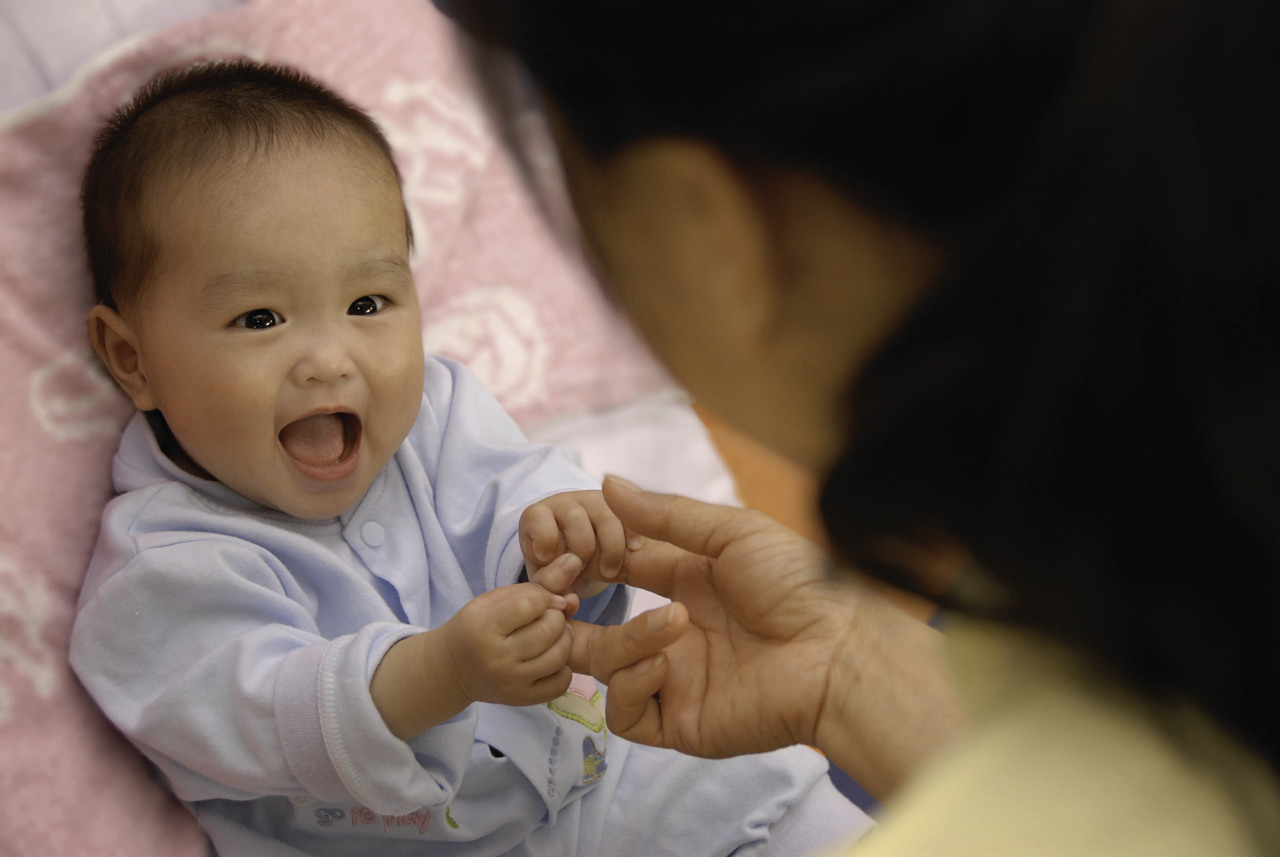
1.
The Whole Child
Chunhui Children’s programs embrace the “whole child” concept. In these programs, efforts are made to identify each child’s uniqueness, develop their strengths, and promote their holistic development. Chunhui mamas design child-centered and developmentally appropriate activities and prepare enriching materials. The children are encouraged to participate in these activities and complete tasks, independently or in groups. This not only unleashes each child's potentials but also strengthens their cooperation with each other. Through these activities, the children can better understand themselves and learn to appreciate their peers, which improves their social skills and gives them a sense of fulfilment.
2.
Infancy-to-adolescence education
Chunhui Children’s programs focus on the all-round development of children from infancy to adolescence, with the aim of preparing them for their future life. All those who work with the children are viewed as their important supporters. Together they build an enriching and loving environment for the children and ensure they get the support they need to develop their potentials at each stage of their life from infancy to adolescence.
3.
Inclusiveness
In Chunhui Children’s programs, Chunhui mamas respect and accept all children. We believe that each child deserves equal attention and loving care, regardless of their learning ability, background, personality or level of disability. We make sure that every child has access to education and a high-quality living and learning environment. We are committed to promoting the children’s social integration and ensuring that no one is left out. Every child has hope and chance for a better future. Through inclusive education, we not only support the development of children, but also lay a solid foundation for their full integration into society.
4.
Create a nurturing environment
Based on the children’s developmental needs, Chunhui Children creates safe and supportive program environment equipped with accessible facilities. In this environment, rehabilitation training is incorporated with routine activities. The children here feel free, safe, understood, accepted, and respected. They learn and explore the way they like.
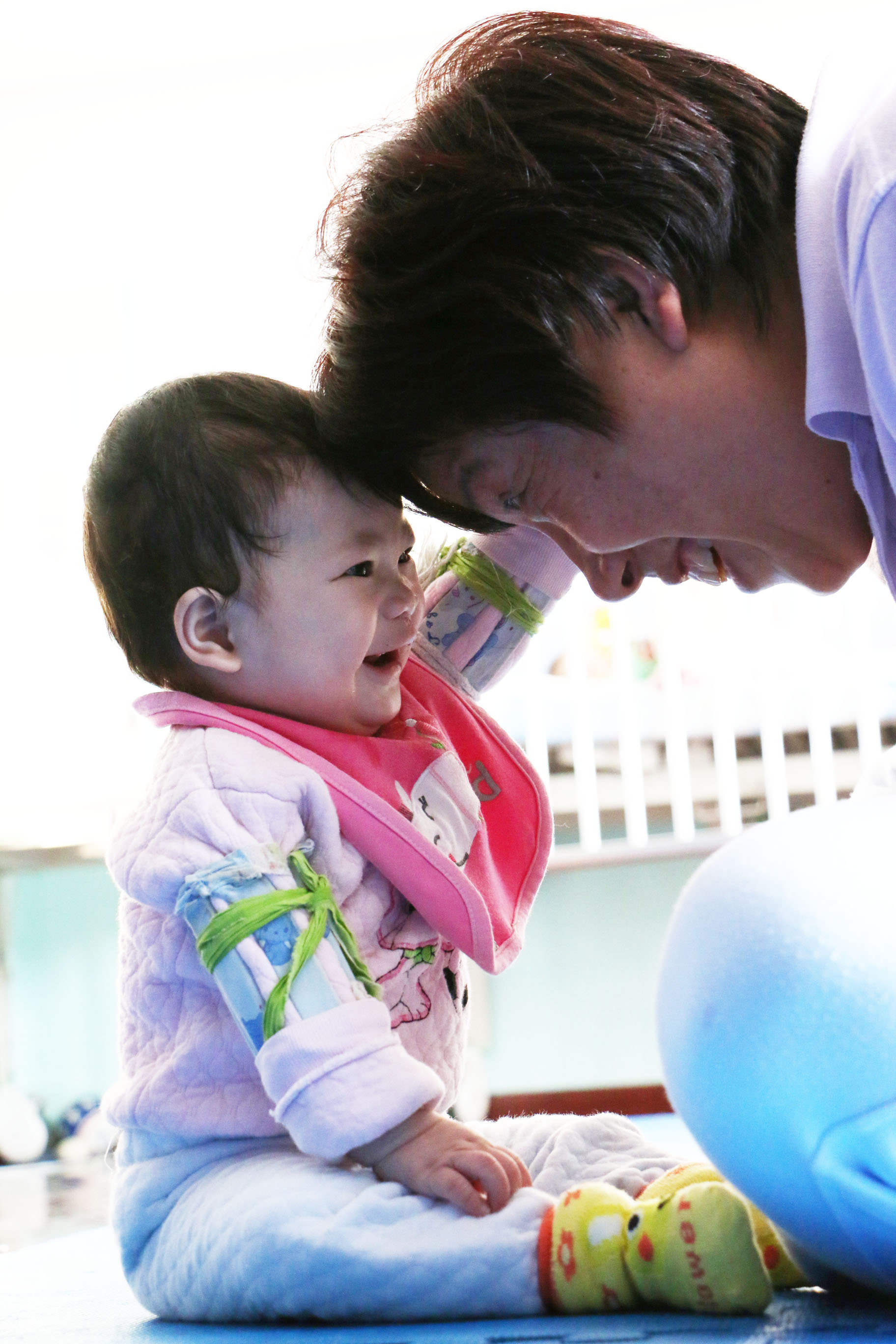
1.
Listening and communication: Listen to your children's thoughts and feelings patiently, no matter how immature they may seem. Keep the conversation going through open-ended questions, encourage your children to express and ensure they don’t have to worry about being denied or ridiculed.
2.
Avoid giving immediate judgment to your children's actions or choices. Don’t tell them what to do directly. Instead, try to put yourself in their shoes, understand their thoughts and problems, replace criticism with support and encouragement.
3.
Encouraging self-exploration: Allow your children to explore their own interests, even if they differ from what you expect. Accepting your children's interests will help them build self-confidence and independence.
4.
Giving options rather than orders: Where possible, give your children options instead of orders. This can enhance their decision-making ability and independence.
5.
Assigning age-appropriate responsibilities to you children: avoid doing everything for your children. Allowing them to take age-appropriate responsibilities will empower them.
6.
Involving your children in family issues: while making plans and solving problems together with you, your children will feel being heard and more respected.
7.
Empathy and understanding: When your children have trouble, show them empathy, and let them know that they are not alone. Work with your children to find solutions, rather than simply solve the problems for them.
8.
Positive feedback: pay more attention to your children's efforts and progresses than their achievements. No matter what they do, let them know you love them for who they are. This can help them build a positive self-image.
9.
Set reasonable expectations: Set reasonable expectations based on your children's ages and abilities. Expectations that are too high or too low can both stress your children. Goals that are "just one step away from success" work better.
10.
Create safe environment: When a child makes a mistake, adults should prioritize appropriate redirections over simple punishments. Help your children understand the consequences of their actions and encourage them to learn from mistakes.
11.
Set an example for your children: Demonstrate through your words and actions how to accept and respect others, including peers, family members, friends, and strangers. Children learn how to interact with others through observation.
12.
Encourage social interaction: Encourage your children to socialize with peers of different backgrounds and abilities. This will help them learn to accept and understand diversity.
Acceptance, the golden key to education, opens the door to the inner world of every child. It helps the children establish good relations and release their potentials. Let us treasure this golden key and use it to help each child create a future with unlimited possibilities.